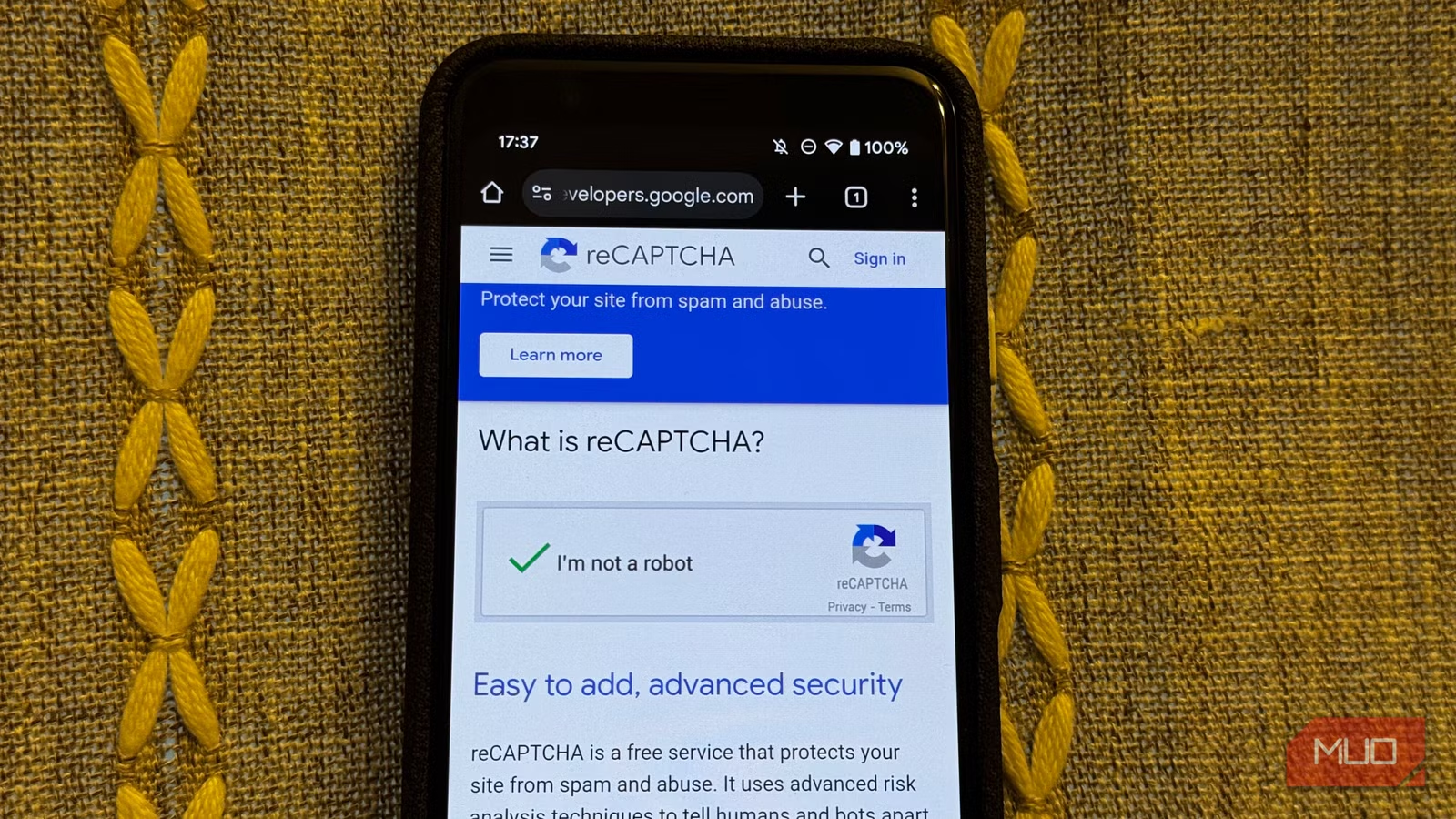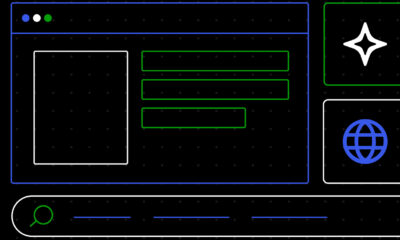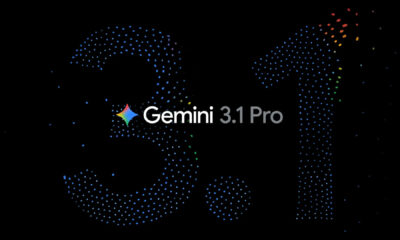SEARCHENGINES
Google Helpful Content Update To Target Content Written For Search Rankings

Google has announced a new big search ranking algorithm update named the helpful content update – yes, Google named it that. This update will start to roll out next week and will target content that is, um, not helpful to humans and people.
The helpful content update looks to weed out content written for the purpose of ranking in search engines that do not help or inform people. Google said this update will “tackle content that seems to have been primarily created for ranking well in search engines.” The update will “help make sure that unoriginal, low-quality content doesn’t rank highly in Search,” Google added. So if you are writing content with the purpose of driving search engine visibility and traffic, you might be hit by this.
It is my opinion that this update will change how SEOs perform content strategies going forward, much like Panda and Penguin changed how SEOs did content and link strategies, respectively, a decade ago.
Google Helpful Content Update Quick Facts
Here are the most important things that we know right now in short form:
- Name: Google helpful content update
- Launch Date: To be announced but likely the week of August 22nd
- Rollout: It will take about two weeks to fully roll out
- Targets: It looks at content that was created to rank well in search over help humans
- Search Only: This currently only impacts Google Search, not Google Discover or other Google surfaces. But Google may expand this to Discover and more in the future.
- Penalty: Google did not mention penalty but this update does seem to feel like a penalty for sites that will be hit by it
- Sitewide: This is a sitewide algorithm, so the whole site will be impacted by this update
- Not a core update: Many are going to say this is a core update, it is not.
- English Language but will expand: This is only looking at English-language content globally now but likely will expand to other languages.
- Impact: Google would not tell me what percentage of queries or searches were impacted by this update but Google did tell me it would be “meaningful.” Also, Google said this will be felt more for online-educational materials, entertainment, shopping, and tech-related content.
- Recover: If you were hit by this, then you will need to look at your content and see if you can do better with Google’s advice below
- Refreshes: Google updates the scores constantly here but there is a timeout period, and a validation period and it can take several months to recover from this update.
Smells Like Panda?
Does this sound like Google Panda to you? It does to me. But Google told me this update is in addition to Panda, which is already baked into the core algorithm for many many years. So Panda is still running but this update is a new one that might feel like Panda did when it launched but is different.
I do believe this update, when we look back at it years later, will be at the same stature of a Panda or Penguin in the way that it forced SEOs to rethink some of their SEO strategies. I think this update will do that with content marketing and SEO content strategies for some agencies.
Sitewide Algorithm
This is a sitewide algorithm, meaning if the machine learning algorithm determines that a relatively high amount of your content is unsatisfying or unhelpful content, that may lead to a site being flagged by this classifier and thus your whole site will be impacted.
Here is John Mueller on the machine learning aspect – in short, not a big deal:
Machine learning is just a tool – it’s used in lots of places; think of it more as an a/b test.
— 🥔 johnmu (personal) updated for 2022 🥔 (@JohnMu) August 19, 2022
This helpful content update will not be applied to individual pages but to the whole site.
So you think you can trick Google by moving the unhelpful content to a subfolder or subdomain, I am told that might not work. Instead, you should either remove that content or make it super helpful.
Here is how Danny Sullivan of Google responded to that:
We tend to see subdomains apart from root domains but it can also depend on many factors.
— Danny Sullivan (@dannysullivan) August 18, 2022
Can you use a noindex to hide the unhelpful content? Sure, John Mueller of Google said but…
noindex is fine. Consider if all we see are good signals for your site, that’s a good sign. That said, as a user I’d feel kinda weird, you land on a good page, and the rest is bad? Why would you do that? Short-term noindex is a good way to start, but usually it’s not a few pages.
— 🥔 johnmu (personal) updated for 2022 🥔 (@JohnMu) August 18, 2022
Google added “Any content – not just unhelpful content – on sites determined to have relatively high amounts of unhelpful content overall is less likely to perform well in Search, assuming there is other content elsewhere from the web that’s better to display. For this reason, removing unhelpful content could help the rankings of your other content.”
Updates Regularly But Several Months Validation Period
Google said the helpful content update system is automated, regularly evaluating content. So the algorithm is constantly looking at your content and assigning scores to it. But that does not mean, that if you fix your content today, your site will recover tomorrow. Google told me there is this validation period, a waiting period, for Google to trust that you really are committed to updating your content and not just updating it today, Google then ranks you better and then you put your content back to the way it was. Google needs you to prove, over several months – yes – several months – that your content is actually helpful in the long run.
Google wrote it will “continue refining how the classifier detects unhelpful content and launch further efforts to better reward people-first content.” “A natural question some will have is how long will it take for a site to do better if it removes unhelpful content? Sites identified by this update may find the signal applied to them over a period of months. Our classifier for this update runs continuously, allowing it to monitor newly-launched sites and existing ones. As it determines that the unhelpful content has not returned in the long-term, the classification will no longer apply,” Google added
So if you get hit by this update, it can take months and months to recover – that is – if you put the work in.
Helpful Content Update Signals
Google also told me that it aggregates a variety of signals about the page and site to determine the ranking of a page. Google would not say if links are part of those signals or not, but it does not seem so.
Google uses machine learning to identify such content – content designed to rank well in search and not be helpful to users. Google told me they validated these algorithms with quality raters and that using this system improves its search quality, just as Google validates any type of ranking improvement prior to launch.
Meaningful Impact – English
I asked Google how big of an update this will be and Google told me this is “a meaningful update across Search.” Google said that based on its testing, it will have a greater impact on online educational materials, as well as arts & entertainment, shopping, and tech-related content, not because those areas were focused on but because they might have higher amounts of content that this update targets.
Google added this is right now rolling out first to English searches globally. Google added it does “plan to expand to other languages in the future.”
What is online education, Danny Sullivan from Google said on Twitter “Generally tutorial, things meant to teach something, not really formal courses. But again, it’s not focused on any particular area. That’s just one example where we see notable improvement but there are others and any query about any thing might benefit.”
Google announced this a tab before it launched so that you can be aware and know if this impacted your site:
One of the reasons we announce these changes (and list them on our site with dates) is that site owners can check bigger visibility changes they’re experiencing (search analytics report) and go back to see what Google might have changed.
— 🥔 johnmu (personal) updated for 2022 🥔 (@JohnMu) August 19, 2022
Why The Helpful Content Update
Why is Google releasing this update? Well, based on the feedback the search company has been getting through the feedback link in Google Search, on social media, and on the internet – searchers are not happy with the quality of some of the content they discover on Google. We’ve been hearing about it for years, so this is Google’s answer to improve those quality issues.
Google Helpful Content Update Advice
Google also provided two sets of questions you can ask yourself about your content to see if it will do well with this helpful content update.
Google said “How do you avoid taking a search engine-first approach? Answering yes to some or all of the questions is a warning sign that you should reevaluate how you’re creating content across your site:”
- Is the content primarily to attract people from search engines, rather than made for humans?
- Are you producing lots of content on different topics in hopes that some of it might perform well in search results?
- Are you using extensive automation to produce content on many topics?
- Are you mainly summarizing what others have to say without adding much value?
- Are you writing about things simply because they seem trending and not because you’d write about them otherwise for your existing audience?
- Does your content leave readers feeling like they need to search again to get better information from other sources?
- Are you writing to a particular word count because you’ve heard or read that Google has a preferred word count? (No, we don’t).
- Did you decide to enter some niche topic area without any real expertise, but instead mainly because you thought you’d get search traffic?
- Does your content promise to answer a question that actually has no answer, such as suggesting there’s a release date for a product, movie, or TV show when one isn’t confirmed?
Google also said “How can you ensure you’re creating content that will be successful with our new update? By following our long-standing advice to create content for people, not for search engines. People-first content creators focus first on creating satisfying content, while also utilizing SEO best practices to bring searchers addition value. Answering yes to the questions below means you’re probably on the right track with a people-first approach:”
- Do you have an existing or intended audience for your business or site that would find the content useful if they came directly to you?
- Does your content clearly demonstrate first-hand expertise and a depth of knowledge (for example, expertise that comes from having actually used a product or service, or visiting a place)?
- Does your site have a primary purpose or focus?
- After reading your content, will someone leave feeling they’ve learned enough about a topic to help achieve their goal?
- Will someone reading your content leave feeling like they’ve had a satisfying experience?
- Are you keeping in mind our guidance for core updates and for product reviews?
SEO Community Reaction
Here are some other stories written in the community on this topic:
Here are some of the reactions I found from the SEO community on this new algorithm update:
SEOs will look back at this update and it should be like a Panda, Penguin, Florida update type of update – it may change how content SEO is done going forward. More at https://t.co/yEFetlJJRO https://t.co/eNRjkrWnW6
— Barry Schwartz (@rustybrick) August 18, 2022
So, will this be like Son of Panda?
— SEO-Theory.Com (@seo_theory) August 18, 2022
The “Helpful Content Update” will start rolling out next week & it will take about 2 weeks to complete. Like the Product Reviews Update, it’s focused on English content globally. The signal is a classifier that will be continuously running. https://t.co/qRXqaUCS2F pic.twitter.com/65TUQow7gF
— Glenn Gabe (@glenngabe) August 18, 2022
More on the HCU: Google explained to @rustybrick that the update will only impact Search for now (and not Discover or other surfaces). It might in the future, but not for now. That’s an important point. https://t.co/c0KfcmHw0j pic.twitter.com/DaUJNgyrz2
— Glenn Gabe (@glenngabe) August 18, 2022
Niche site twitterzzzz https://t.co/82iFbuBOOE pic.twitter.com/j9beEeV0d5
— TomJ 🍀 (@WolfofBaldSt) August 18, 2022
Google to upgrade anonymous Reddit threads in most search results. 😉 https://t.co/JIhBDrhaJ7
— Tadeusz Szewczyk (Tad Chef) (@onreact) August 18, 2022
Does this mean they didn’t focus on helpful, useful, authentic content before?
— Pritesh Patel (@priteshpatel9) August 18, 2022
Right now, in some SEO departments pic.twitter.com/VsJmnZtN8p
— Pedro Dias (@pedrodias) August 18, 2022
Niche site twitterzzzz https://t.co/82iFbuBOOE pic.twitter.com/j9beEeV0d5
— TomJ 🍀 (@WolfofBaldSt) August 18, 2022
Best of luck everyone! https://t.co/aRa76wORvg pic.twitter.com/BKkfjpOZUS
— Keith (Niche Site Stuff) (@MintedEmpire) August 18, 2022
Love this 🔍 https://t.co/JnfDroFGte pic.twitter.com/KMOqiOaHWu
— Brian Freiesleben (@type_SEO) August 18, 2022
Techmeme has a nice roundup of articles on this topic over here:
Google plans to prioritize “content made specifically by and for people” in Search in English globally, covering shopping, tech-related content, and more (@zombie_wretch / The Verge)https://t.co/GvTMLtxiYOhttps://t.co/S337JjuWO5
— Techmeme (@Techmeme) August 18, 2022
At a minimum Google going public with something like this should send a massive wake up signal to us as to what it thinks it can do & if they don’t get right this time they eventually will.
— Mordy Oberstein 🇺🇦 (@MordyOberstein) August 18, 2022
“This classifier process is entirely automated, using a machine-learning model. It is not a manual action nor a spam action.”
Google using AI to find spammy AI content.
🔥 Fight fire with fire. 🔥 https://t.co/m94Akimnwi— Roxana Stingu (@RoxanaStingu) August 18, 2022
I have a feeling this new update is going to help make Google’s index even more exclusive – I think some sites might be seeing even more pages that Google won’t add to the index despite being technically indexable. https://t.co/gt5FdZhKmu
— Nati Elimelech (@Netanel) August 18, 2022
I really do feel this could wipe out affiliate marketing as we know it for the smaller guys https://t.co/qbocLZimYp
— Ryan Murton (@ryan_murton) August 18, 2022
How much of the content created for clients is actually more helpful?
4000 words without any original insight that is just an amalgam of existing top-ranking content will hopefully die https://t.co/XEWB1NsCE8
— Andy Beard (@AndyBeard) August 18, 2022
Sounds like media sites are about to get smacked. https://t.co/joEUMOeFkB
— Mic King (@iPullRank) August 18, 2022
Excited our “helpful content update” launches soon. Been watching team work hard on it, part of a broad continuing effort to bring more authentic info into Google Search. I’m on vacation this week but will try in few hours to answer questions I see, though our posts cover a lot. https://t.co/aj86MoXWqI
— Danny Sullivan (@dannysullivan) August 18, 2022
I read several things from it:
▶ This update does not only affect individual content but has an impact on content of entire websites, which suggests that E-A-T plays a major role.
▶ The recurring reference to the expertise also suggests that it will be an E-A-T focused update.— Oᒪᗩᖴ KOᑭᑭ ✌️🔥 (@Olaf_Kopp) August 18, 2022
Worth noting the person who was clever enough to create a decade long annuity by outsmarting the algorithm ended up creating a warchest which allowed them to invest far more than that competitor who waited a decade on rankings could.
— aaron (@aaronwall) August 19, 2022
This update might be a version of that.
It will be interesting to see the ranking impacts as it rolls out in the coming weeks.
If you’ve been focusing on writing content for search engines instead of users, you might want to reconsider that strategy!
— Lily Ray 😏 (@lilyraynyc) August 18, 2022
“SEO content” is deadhttps://t.co/H0x9UmMmOp
— Rohan Ayyar (@searchrook) August 18, 2022
We will keep you posted on when it launches and I hope this does not devastate the SEO community like the Panda or Penguin update did – but it sounds like this one will be a big one and will cause a fundamental shift in how SEO content development is done by many SEO agencies.
I should note, Google does plan on pushing a new product reviews update but I suspect they will hold that fifth product reviews update until this helpful content update is done rolling out.
Forum discussion at Twitter, WebmasterWorld and Black Hat World.
Source: www.seroundtable.com


















You must be logged in to post a comment Login